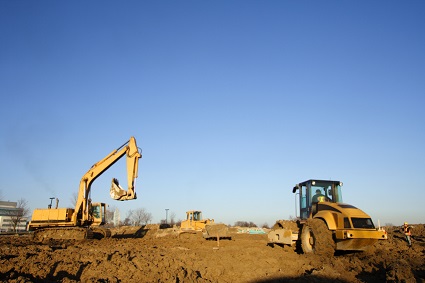Last Updated on October 24, 2023 by Ephraim Vecina
Last year was a blockbuster for Canada’s real estate developers after work began on the most homes in a decade amid soaring demand nationwide.
Construction started on 219,675 units, according to 2017 data released by Canada Mortgage and Housing Corporation last week. That’s up from 197,916 in 2016 and the most since 2007. Starts on multiple-unit projects such as condos hit a record in figures dating to 1955.
The boom has surprised policy makers and analysts, most of whom began the year predicting the industry would be a drag on the economy. It reflected fundamental drivers such as a buoyant economy and rising population.
Robert Kavcic, an economist at Bank of Montreal in Toronto, said the strong year for housing starts was “backed by underlying demographic support and strengthening labor markets in the country’s largest provinces,” as quoted by Bloomberg.
The 2017 surge was broad-based, with starts in Ontario at the highest level since 2004 and reaching records in British Columbia. They advanced in Alberta for the first time since the 2014 oil crash.
Read more:
The increased activity mostly sidestepped land-constrained Toronto and Vancouver, the country’s two most expensive markets, but was robust in the suburbs and less pricey surrounding cities. Starts in Toronto fell 1% to 38,738 in 2017, while declining 6% in Vancouver to 26,204 units. In Montreal, Canada’s second most populous city, starts jumped 39% to 24,756.
Builders began work on 142,840 multiple units in 2017, up 15% from 2016. That was driven by new construction of 102,516 apartment-like homes, the highest since 1973, and 28,033 row-like homes, the highest for that category since 1976.
Demand has remained strong nationally even with prices in the Toronto region coming off from records. The latest data from the Canadian Real Estate Association show national home prices are up 9.3% over the past year, bringing 5-year gains to 48%. Even in Toronto, prices are up 8.4% over the past 12 months.
At the start of 2017, economists had been forecasting housing starts would drop that year to the lowest since the 2009 recession. But the economy performed better than almost anyone expected, with Canada’s employers creating more than 400,000 jobs.
Perhaps the biggest influence has been an acceleration in population growth that few anticipated. Statistics Canada estimates the population has grown at an annual pace of more than 1.3% over the past year, which is the fastest since the early 1990s.
A slowdown may be in store for 2018 however, as the tighter mortgage qualifications kick in and the Bank of Canada raises interest rates.
“With a record number units under construction to start the year, demand in some quarters tempered by policy changes, and interest rates on their way up again,” Kavcic said, “this year will likely see activity moderate.”
Related stories:
Ephraim is currently a journalist at Mortgage Broker News, Real Estate Professional and Canadian Real Estate Wealth.
Ephraim is a highly accomplished news reporter whose work has been published across North America and the Asia Pacific region. Before joining Key Media, Ephraim spent eight years working as a journalist with Reuters TV. His areas of expertise include real estate, mortgage, and finance.
LinkedIn | Email









